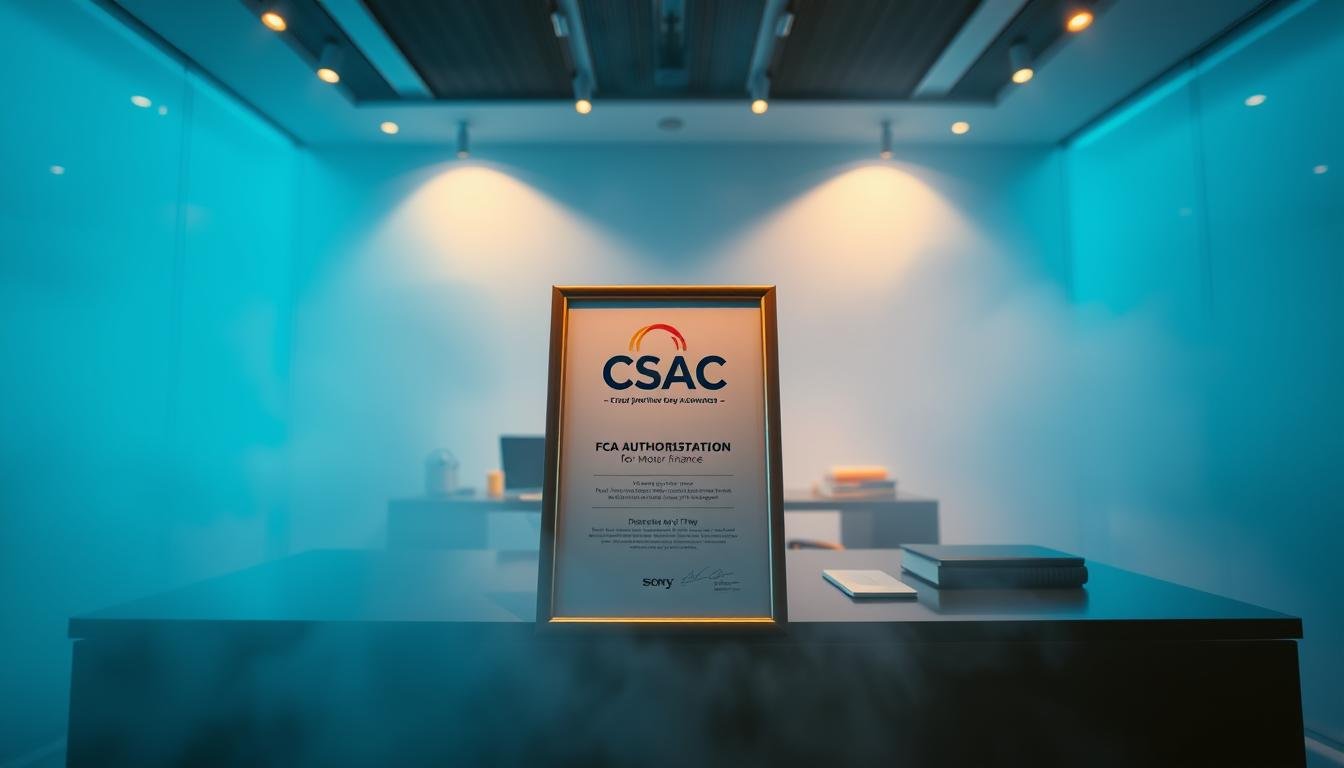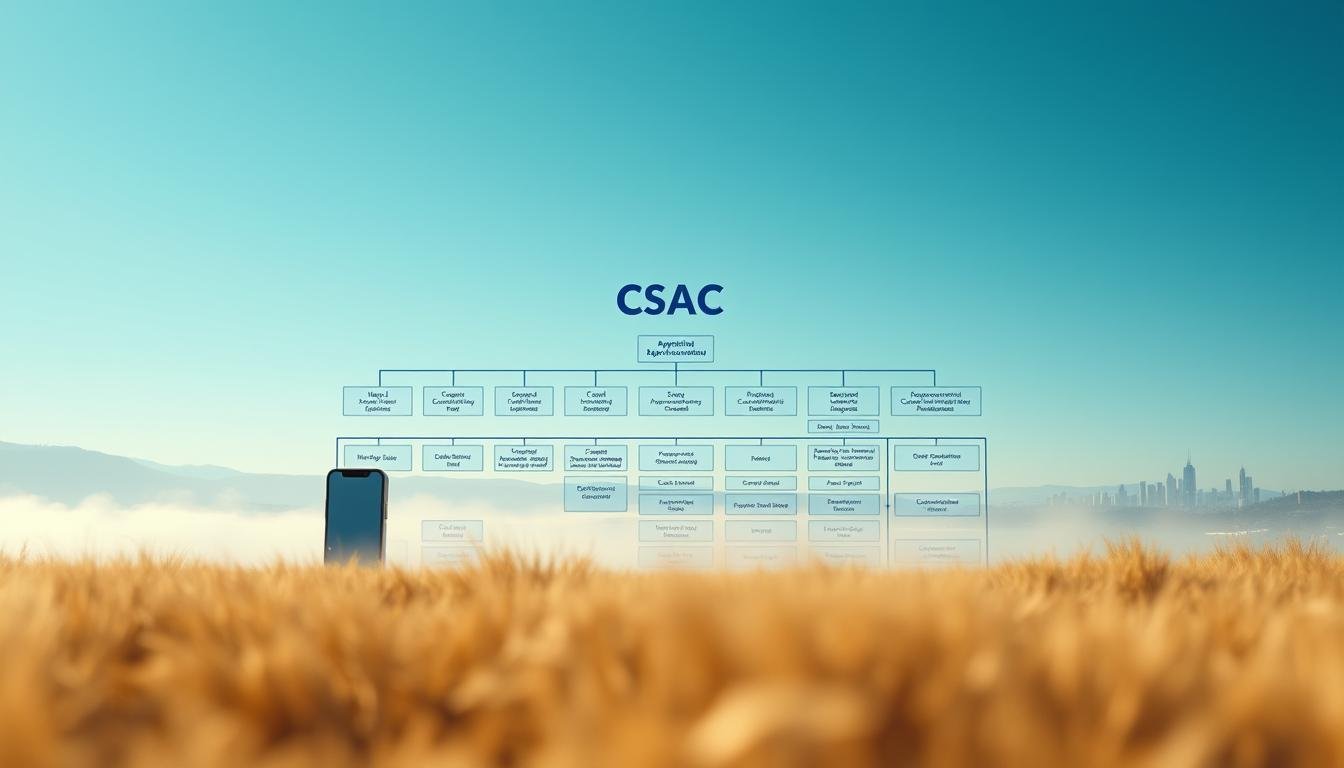In a market where the Financial Conduct Authority (FCA) oversees almost 60,000 businesses, standing out as a compliant car finance provider is no small feat. I am part of the editorial team at CSAC.org.uk, where we dissect the intricacies of UK financial regulations to bring clarity to the complex world of motor finance FCA authorisation. It’s essential to understand that without FCA approval, motor dealers cannot only face substantial fines and criminal convictions, but their hard-earned reputation is also at risk.
The landscape of consumer credit firms is diverse, with different levels of authorisation mapping the terrain. For instance, motor dealers can generate up to £50,000 in annual income from finance with limited permission, highlighting the nuanced options within the regulatory framework. Those providing credit without FCA authorisation not only face potential legal repercussions but also risk being shunned by credible credit lenders and brokers – a particularly sobering thought for the motor finance sector.
Here, we will navigate through the details of FCA authorisation, an essential regulatory requirement that demands car finance providers to make a strategic choice: to seek Full Permission with its comprehensive documentation and ongoing compliance efforts or to opt for Limited Permission, a typically more straightforward and less complex route. This decision is critical, as it ultimately dictates the level of ongoing regulatory oversight from the FCA and the standards of consumer protection that firms must adhere to. So, let us delve into what these permissions entail and the impact they have on those steering through the UK’s financial regulation landscape.
Understanding FCA Authorisation for Car Finance Companies
In the realm of automotive finance, the importance of adherence to financial market regulation cannot be understated. The Financial Conduct Authority (FCA), established in 2013, plays a pivotal role in ensuring that financial market operations are conducted with the utmost integrity and in the best interest of consumers. This is particularly crucial in the consumer credit categories pertinent to car finance, where the potential for automotive finance risks requires rigorous management and oversight.
Why FCA Authorisation Is Necessary
To operate legally in the UK’s automotive finance sector, car dealerships must secure specific permissions from the FCA. This authorisation serves multiple functions: it enhances the dealership’s reputation, underpins consumer trust, and ensures compliance with mandatory consumer protection standards. Essentially, this regulatory framework is designed to prevent financial malpractices that could harm consumers, thereby maintaining a fair and competitive market.
Difference Between Limited and Full Permissions
Within the spectrum of FCA oversight, there exists a distinction between Limited Permission FCA and Full Permission FCA. Limited Permission typically suffices for entities whose provision of credit is incidental to their primary business, like car dealers focusing primarily on vehicle sales. In contrast, Full Permission is indispensable for companies whose main operation involves consumer credit lending, covering more extensive financial services. The stringent requirements for Full Permission demand robust systems and controls, highlighting the FCA’s commitment to comprehensive consumer credit compliance.
Impact on Car Finance Providers
The implications of FCA authorisation for car finance providers are profound. Obtaining Full Permission not only allows them to offer a broader range of services, such as insurance mediation or debt management but also instils a higher level of customer trust. Compliance involves ongoing responsibilities like regular staff training, thorough audits, and updates in legal advice, demonstrating the company’s dedication to motor finance regulation and upholding high standards of operation and consumer protection.
Moreover, maintaining this authorisation demands continuous oversight of financial dealings and customer interactions, essential for mitigating potential automotive finance risks and ensuring compliance with the evolving landscape of financial market regulations.
What type of FCA authorisation do car finance providers require?
Choosing the correct type of Financial Conduct Authority (FCA) authorisation is crucial for car finance providers in the UK, as it directly impacts their operations and compliance with regulatory standards. Two main authorisation routes exist, namely FCA full permission lending and FCA limited permission, each serving specific business models within the car finance sector.
For businesses involved in credit broking motor finance, especially those dealing with new car sales and higher-risk financial products like Personal Contract Purchases (PCPs), FCA full permission lending is mandatory. This level of authorisation requires firms to adhere strictly to FCA’s comprehensive consumer credit rules, ensuring they manage loans and customer data with utmost efficiency and compliance.
Criteria for Full Permission
Firms seeking FCA full permission lending must demonstrate robust knowledge of lending regulations and establish effective systems for managing both loans and customer interactions. This is particularly important for those engaged in high-risk activities such as credit broking motor finance or secondary credit broking, where introducing customers to lenders forms a primary part of their business. Meeting stringent Threshold Conditions and Approved Person requirements is non-negotiable to maintain market integrity and provide adequate customer protection.
Criteria for Limited Permission
FCA limited permission is more suitable for motor dealers whose primary business revolves around car sales but who also offer ancillary credit broking services to facilitate vehicle purchases. This level of authorisation is associated with lesser regulatory burdens, both in terms of procedural demands and financial costs. However, it limits providers from combining this with direct FCA authorisation for general insurance services, focusing mainly on lower-risk consumer credit activities such as not-for-profit debt counselling or consumer credit lending linked to selling goods.

The critical variance between these two permits hinges on the nature and scale of financial activities a firm intends to undertake. Entities engaging in primary or high-risk financial operations involving comprehensive credit services or more significant sums must opt for FCA full permission lending, thus demonstrating higher compliance and operational standards. Conversely, businesses focusing mainly on sales while offering finance as a secondary service find FCA limited permission adequate and less cumbersome, effectively reducing their operational overheads while staying compliant.
The Application Process for FCA Authorisation
Applying for FCA authorisation is a meticulous process that requires understanding and compliance with detailed FCA application requirements. All candidates must submit a complete portfolio of supporting material submission, which includes financial statements, business plans, and evidence of compliance mechanisms. These documents not only demonstrate compliance but also prepare the firm for a thorough authorisation assessment.
It is crucial for applicants to familiarise themselves with FCA expectations early in the process. This preparation includes detailed knowledge of compliance criteria and how they apply to the specific operations of the car finance sector. The FCA insists on the submission of final versions of all documents, which should be carefully reviewed and signed off by authorised personnel before submission.
Additionally, the FCA’s authorisation assessment for car finance providers is both rigorous and comprehensive. Failure to meet any of the compliance criteria can significantly delay the process, or even result in denial of authorisation. Therefore, effective compliance demonstration throughout the application is vital for a successful outcome.

The potential timeline for application authorisation also varies depending on the type of financial service provider. General financial market firms under the FSMA may wait up to six months, while payments and e-money firms can expect a decision within three months, provided that their application is complete. Incomplete applications could extend the waiting period up to twelve months, highlighting the importance of thorough and meticulous documentation and supporting material submission from the outset.
Understanding and navigating the application requirements demands a holistic approach from prospective car finance providers. By ensuring all compliance demonstration procedures are robust, and by efficiently managing the submission of all necessary documentation, firms not only streamline their authorisation assessment process but also reinforce their operational readiness to meet ongoing FCA regulatory expectations.
Meeting these stringent requirements is not merely about gaining approval but is central to maintaining the integrity and reliability of the financial services industry, safeguarding consumer interests, and promoting a healthy market environment.
Deciding Between Full and Limited Permissions for Motor Finance
When discussing the regulatory compass guiding the motor finance sector in the United Kingdom, selecting appropriate authorisation is pivotal. The Financial Conduct Authority (FCA) delineates two key pathways for authorisation: Full Permission and Limited Permission. For motor finance entities, this decision is non-trivial as it affects operational purviews and adherence to compliance frameworks. Typically, activities such as credit broking, when it’s the primary business activity, and debt administration necessitate Full Permission, reflecting the elevated risk and regulatory scrutiny involved.
FCA permission strategy is not a one-size-fits-all solution; it requires a tailored approach, one that aligns with firm-specific attributes like business size, customer interaction intensity, and nature of credit provisions offered. For instance, firms predominantly in the business of selling vehicles, offering finance options as a supplementary service, may qualify for Limited Permission. However, this is provided they meet specific conditions, such as ensuring credit broking is ancillary to car sales and not already directly authorised for other regulated activities like general insurance.
In the realm of motor finance compliance, navigating the nuances between Full and Limited Permissions is essential. Full Permission presents a broad spectrum of FCA consumer credit rules, demanding comprehensive internal control mechanisms and in-depth reporting processes. On the other hand, Limited Permission is less onerous with fewer threshold conditions and lower annual authorisation fees. Firms must balance these considerations with pragmatic evaluations of their business model’s scale and scope, alongside the financial implications of different categories of application fees and regulatory commitments. With rigorous compliance imperatives, the Financial Services Register cites entities like Novuna Consumer Finance that exemplify adherence, holding full authorisation and serving as benchmarks for best practices.














